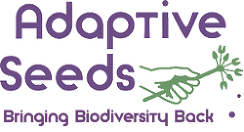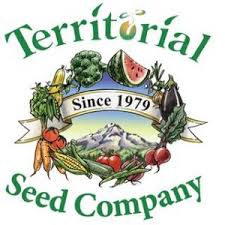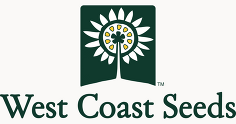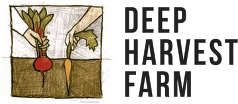We do things a little differently here at Eastside Urban Farm & Garden, and we’ve taken a stand on seeds!

Our mission is to increase local food resiliency, and we have concerns over the loss of more than 70% of seed diversity over the last 50 years. Not only do folks have less variety in the flavors of foods because of limited seed stock, but more importantly, in the face of a fluctuating climate, folks now have less varieties to work with to try to adapt and grow food in rapidly changing conditions. Much of the loss of diversity has occurred due to the consolidation of the seed industry, which has led to most of the world’s food seeds being produced by only a handful of large corporations, who then patent their seeds, making it illegal for folks to save seeds. Not only that, but did you know that less than 5% of the food eaten in South Sound is produced here? We aim to turn that around, and we need your help!
In our effort to help rebuild our local food-shed, and increase our local food resiliency, we have sought out what we believe to be the best available varieties of Organic seeds, many open-pollinated and heirloom varieties, from 5 seed companies and organizations that are helping to keep local seed varieties alive, and to keep seeds in the hands of people instead of corporations. We encourage you to learn how to save seeds (it’s easy!), and select your best adapted plants to save for seed year after year. We encourage you to use the Oly Seed Bank (it’s here, in the store!) and to get involved in preserving our food, and our right to our agricultural heritage, and a secure food future.
Our Seed Producers…
Adaptive Seeds & The Seeds Ambassadors Project:

The Seed Ambassadors Project began as a small group of Oregon-based seed stewards with the principal goal to increase the diversity of locally adapted varieties in our bioregion & disseminate this resource in order to further local food system durability worldwide. A few of us spent several winters traveling through Europe & Asia sharing seed, collecting varieties & teaching seed saving skills. So far we have collected over 800 varieties of food plants, most of which were not available in the US when we acquired them. Adaptive Seeds naturally evolved out of The Seed Ambassadors Project as we found ourselves seeking more ways for our seeds to reach people. We at The Seed Ambassadors Project see locally adapted varieties as the foundation of the durable & resilient local food system that we are helping to create. Adaptive Seeds was established in 2009 by Andrew Still & Sarah Kleeger. We are a farm-based seed company near Sweet Home, Oregon. We steward rare, diverse & resilient seed varieties for ecologically-minded farmers, gardeners & seed savers. We sell only public domain, open pollinated (OP) seed, as well as many diverse gene pool mixes. NONE of our seeds are proprietary hybrids (F1), patented, PVP, or genetically modified (GMO). All of our seed is grown without chemical fertilizers, herbicides or pesticides, and NONE of it is treated. We’ve been certified organic since 2013. Most of our seed is produced by us on our farm and we never buy and re-sell mass produced seed, like many other seed companies do. What isn’t produced by us is grown by our Pacific Northwest regional seed producer network.
Why Open Pollinated (OP) & Regional? Hybrid seeds are beneficial mostly as monocrops. It seems the goal of the corporate produced hybrid is to sever the seed’s relationship to the natural world, & profit from a corrupt short-term economic model. We believe proprietary control schemes such as hybrids (F1), patenting, PVP, & trademarking are stifling resilient innovation & diversity. Proprietary hybrids are the single biggest contributor to the erosion of agricultural biodiversity regionally & worldwide. Open pollination encourages diversity & resilience. It is akin to open source. Unlike hybrids, open pollinated varieties become adapted to the area in which they are grown & have been shown to outperform imported seed. If we are to approach true food freedom, it must rest on a foundation of open pollination.
TERRITORIAL SEEDS:

Mission Statement: Our purpose is to improve people’s self-sufficiency and independence by enabling gardeners to produce an abundance of good tasting, fresh from the garden food, twelve months a year.
Long time PNW standby, Territorial Seed Company is a privately held family owned company, owned by Tom and Julie Johns. Purchased in 1985 from its founder, the legendary Steve Solomon, Tom and Julie have grown the business substantially over the past 30 years but have never strayed far from the original course set by Steve.
Each year Territorial’s research garden staff grows and evaluates thousands of varieties for best taste, Northwest hardiness, and good germination. More recently they began reclaiming older, favorite vegetable varieties sometimes shelved by their seed suppliers. Today they grow almost 20% of the seed they offer, especially lettuces, tomatoes, cucumbers, and squash.
Currently they are excited about taking leadership in advising the evolution of organic agriculture from a movement into a mainstream market. There have 20 full-time and 25 seasonal employees locally, strategic alliances with universities and European plant breeders, and a zillion worms making compost and plant teas. Territorial Seeds does not sell GMO seeds. The safety and quality of seeds is important to us and our customers, so we have taken the Safe Seed Pledge, and only work with companies and growers that have also taken the safe seed pledge.
THE SAFE SEED PLEDGE:
“Agriculture and seeds provide the basis upon which our lives depend. We must protect this foundation as a safe and genetically stable source for future generations. For the benefit of all farmers, gardeners and consumers who want an alternative,
We pledge that we do not knowingly buy, sell or trade genetically engineered seeds or plants.
The mechanical transfer of genetic material outside of natural reproductive methods and between genera, families or kingdoms, poses great biological risks as well as economic, political, and cultural threats. We feel that genetically engineered varieties have been insufficiently tested prior to public release. More research and testing is necessary to further assess the potential risks of genetically engineered seeds. Further, we wish to support agricultural progress that leads to healthier soils, genetically diverse agricultural ecosystems and ultimately healthy people and communities.”
WEST COAST SEEDS:

West Coast Seeds was founded in 1983 in Vancouver, British Columbia. Our purpose is to source and supply seeds of a higher quality than have been available to home gardeners. Following the traditions of organic farming and gardening, untreated and certified organic seeds are our focus. Today we offer over 1,000 varieties of untreated, non GMO, non GEO, open pollinated, and hybrid seeds as well as a wide range of quality gardening supplies. West Coast Seeds is certified by the Pacific Agriculture Certification Society. Namely, we believe that food and all plants should be grown without the use of synthetic chemicals and that the seeds we supply are an important component within the broader conceptual approach to organic gardening. We believe that growers are custodians of the land they grow on — however large or small — and that by nourishing the soil through organic gardening techniques like composting and crop rotation, the plants they grow will be more vigorous, and less demanding. We believe that food should be grown in healthy soil. We believe that promoting biodiversity is an essential element of healthy farming.
DEEP HARVEST SEEDS:

“We, Annie Jesperson and Nathaniel Talbot, have raised vegetables, seeds and flowers together on Whidbey Island, Washington for seven glorious farm-seasons. Here at Deep Harvest Farm, we only grow 100% Certified Organic seeds. For us “organic” is more than a value, but a reality embedded into each and every seed. Without being propped up by chemicals, our plants are forced to scavenge nutrients, fend off pests and diseases, and grow big and strong on their own genetic merits. We reject the use of synthetic herbicides, pesticides and fertilizers, instead encouraging our plants to grow in low-input soils fed by composts, green manures and organic-based fertilizers. We only save seed from the plants that thrive best in our organic conditions, increasing the chances that their genes will yield success in your organic gardens and fields, too.”
SALTWATER SEEDS:
“We are focused on growing open-pollinated seeds adapted for the Maritime Northwest. We are inspired by the endless combinations of colors, textures, flavors, and shapes of the plants we work with. We have found this region to have a vibrant agricultural community, thoughtful farmers, engaged farm workers, a community that is supportive of small-scale, local agriculture, and a willingness to continually question the role of agriculture in colonial imperialism, unequal land access, and institutionalized racism. It gives us hope that together we can envision and enact systems that will become more just.
As a small, diversified business, we are committed to contributing to our small-scale agricultural economy by finding, selecting, and stewarding varieties that are productive, delicious, beautiful, and well adapted to our maritime climate. We envision a world where agricultural work is valued as the essential work that it is, where the land is worked by a diversity of people making good wages, and there is a diversity of crops in each field that reflects the diversity of the people caring for the plants and animals that feed us. We want to work with others who share this vision, and we hope to find mentors who can help this vision evolve, adapt, and come alive.
When you buy our seeds you are making it possible for us to purchase the equipment that we need to grow more seeds for this community.”
-Katie, Joanne and Sam
SISKIYOU SEEDS

We are excited to offer Siskiyou Seeds in our store! This excellent company produces an exciting and unique range of extremely high quality vegetable, herb, flower, and grain seeds. In their words:
“Siskiyou Seeds is a bio-regional seed hub that produces open-pollinated & heirloom seeds on our home farm in South West Oregon using organic practices. Siskiyou Seeds also works with a network of certified organic small farms throughout the West to bring you high quality, vigorous, well adapted and unique varieties of vegetables, flowers, herbs and grains. Thank you for your interest in this seed work that we hold sacred and necessary for these times and the collective benefit of humanity.”
